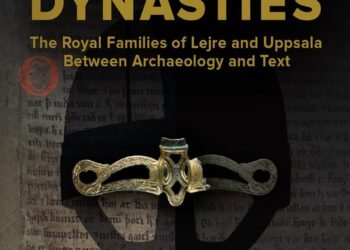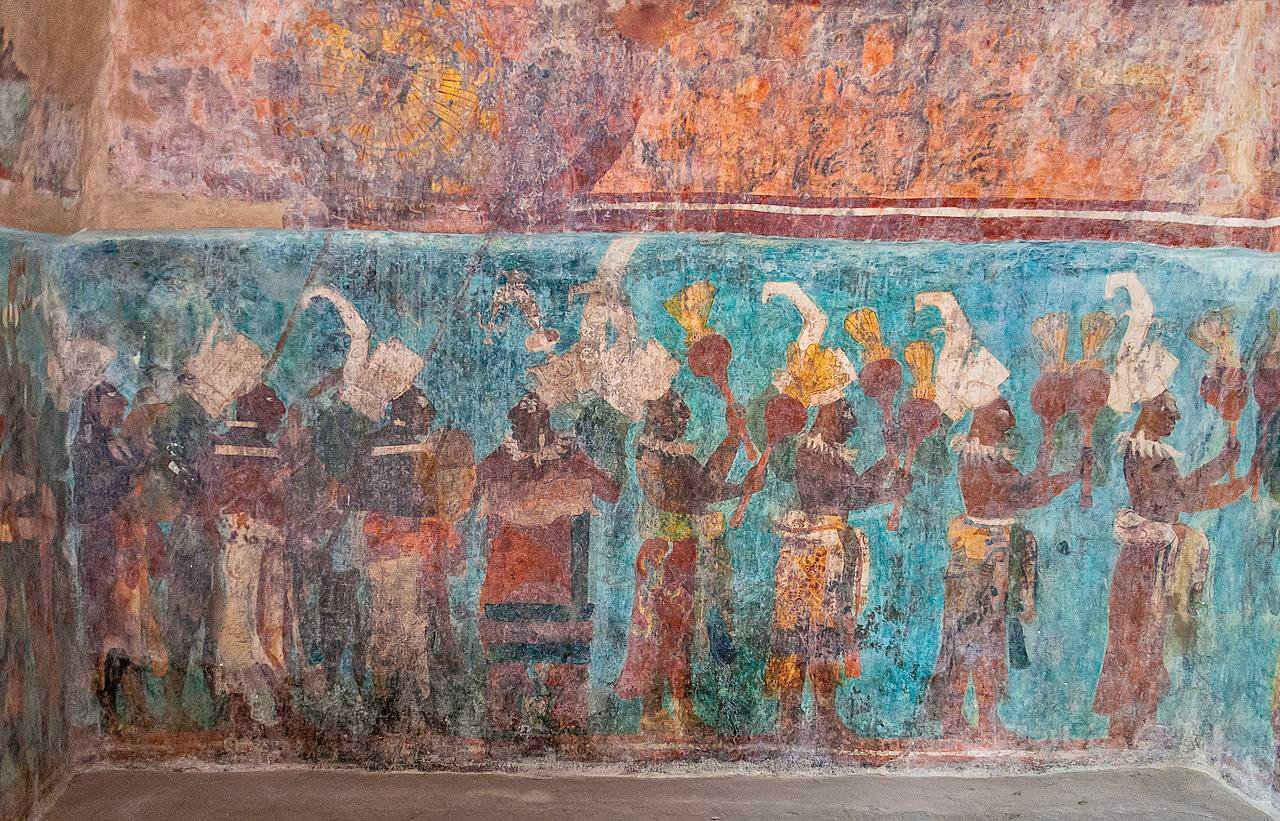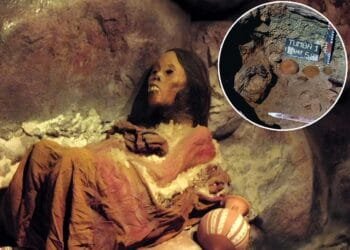 Employer: Norwegian University of Science and Technology
Employer: Norwegian University of Science and Technology
Municipality: Trondheim
Scope: Fulltime
Deadline: 24 Apr 2022
About the position
The NTNU University Museum is seeking a highly qualified, ambitious and motivated candidate for a PhD position in Historical ecology/Environmental archaeology. This position is a fixed term, full time (100 %) position for 4 years and it will devote 25% of the period to required duty work.
The purpose of the PhD project is to explore the potential for eDNA/sedaDNA analyses to study interactions between humans and environment in Central Norway in the past. The successful project will collect and analyse samples from (or around) archaeological sites within the NTNU University Museum’s district, with a possibility to connect with ongoing excavation projects.
The sample contexts will have to be chosen with anintention to: a) supplement our knowledge of human resource use and impact on the environment in the past; and/or b) build regional knowledge about development, changes and variations in the environment in the past.
This material will be the focus of the study, but comparisons with other material, data or contexts nationally or globally are welcome.
The successful candidate must be able to bridge the field of environmental science and archaeology. He/she must be trained (or able to be trained) in metabarcoding and must be able to discuss the results within a culture historical context.
The PhD candidate will be supervised by an interdisciplinary team and will have access to aDNA labs at the NTNU University Museum.
Project outline
Your application must include a short outline (max 3 pages) describing your research interests within the field of Historical ecology/Environmental archaeology.
Your chosen field of research must be aligned with the topics outlined above.
The outline should suggest research questions you want to pursue, their relevance, and the theoretical and methodological approach you plan to follow. This outline is part of the application assessment.
Applicants are required to justify their candidateship by explicitly explaining their personal motivation and academic aptitude for pursuing a doctoral degree within this research field (general applications will not be considered). During the first three months of the employment period, you will develop your proposal to a final research proposal in cooperation with your supervisors.
The candidate will be admitted to the PhD program in Historical and Cultural Studies or Biotechnology.
Duties of the position
- follow the PhD study according to NTNU expectations and regulations
- publish scientific work in relevant journals and at conferences
- complete a PhD thesis within 4 years
Required selection criteria
The PhD-position’s main objective is to qualify for work in research positions. The qualification requirement is that you have completed a master’s degree or second degree (equivalent to 120 credits) with a strong academic background in Historical ecology/Environmental Archaeology or other relevant disciplines, or equivalent education with a grade of B or better in terms of NTNU’s grading scale. If you do not have letter grades from previous studies, you must have an equally good academic foundation. Based on a special assessment, the faculty may approve other, comparable qualifications as the basis for admission.
The appointment is to be made in accordance with the regulations in force concerning State Employees and Civil Servants and national guidelines for appointment as PhD, post doctor and research assistant.
Excellent English skills, written and spoken, are required. Applicants from non-European countries where English is not the official language must present an official language test report. The following tests can be used as such documentation: TOEFL, IELTS or Cambridge Certificate in Advanced English (CAE) or Cambridge Certificate of Proficiency in English (CPE). Minimum scores are:
TOEFL: 600 (paper-based test), 92 (Internet-based test)
IELTS: 6.5, with no section lower than 5.5 (only Academic IELTS test accepted)
CAE/CPE: grade B or A
Personal characteristics
- Strong analytical skills
- Strong ability to express research work and results in English, both written and orally
- Flexible and dependable
- Collaborative
- Highly motivated and hard working
Academic results, outline, work or research experience, personal qualifications and motivation will be considered when evaluating the applicants.
Salary and conditions
PhD candidates are remunerated in code 1017 and are normally remunerated at gross from NOK 491 200 per annum before tax, depending on qualifications and seniority. From the salary, 2% is deducted as a contribution to the Norwegian Public Service Pension Fund.
The period of employment is 4 years, and it will devote 25% of the period to required duties in agreement with the department, usually in the form of teaching, public outreach, or work in the Museum’s collections. This will be detailed in your employee contract if applicable.
Appointment to a PhD position requires that you are admitted to the PhD programme at Faculty of Humanities or Faculty of Natural Sciences within three months of employment, and that you participate in an organized PhD programme during the employment period.
The engagement is to be made in accordance with the regulations in force concerning State Employees and Civil Servants, and the acts relating to Control of the Export of Strategic Goods, Services and Technology. Candidates who by assessment of the application and attachment are seen to conflict with the criteria in the latter law will be prohibited from recruitment to NTNU. After the appointment you must assume that there may be changes in the area of work.
It is a prerequisite you can be present at and accessible to the institution daily.
About the application
The application must be submitted electronically through www.jobbnorge.no with:
The application and supporting documentation to be used as the basis for the assessment must be in English or a Scandinavian language.
Publications and other scientific work must follow the application. Please note that applications are only evaluated based on the information available on the application deadline. You should ensure that your application shows clearly how your skills and experience meet the criteria which are set out above.
Joint works will be considered. If it is difficult to identify your contribution to joint works, you must attach a brief description of your participation.
Please submit your application electronically via jobbnorge.no. Applications submitted elsewhere will not be considered. Diploma Supplement is required to attach for European Master Diplomas outside Norway. Chinese applicants are required to provide confirmation of Master Diploma from China Credentials Verification (CHSI).
If you are invited for interview, you must include certified copies of transcripts and reference letters.
NTNU is committed to following evaluation criteria for research quality according to The San Francisco Declaration on Research Assessment – DORA.
NTNU University Museum
The NTNU University Museum is one of Norway’s leading institutions in protection, conservation, exhibition and research related to natural and cultural material. We are one of Norway’s six university museums. The museum has two departments, a national laboratory for age determination, an exhibition and events section, and an administration.
Department of Archaeology and Cultural History
Our most important field of research is cultural history and cultural heritage, technology and methods of spatial analysis, and conservation in practice. In terms of the Cultural Heritage Act, we conduct archaeological surveys and excavations both on land and in water. Heritage management duties also include preservation and curation of cultural heritage archives and collections. We conduct extensive dissemination and outreach, and educate archaeologists in cooperation with the Department of Historical and Classical Studies. The Department of Archaeology and Cultural History is one of two departments at the NTNU University Museum.
- Preliminary research outline
- CV including a list of publications
- Copies of both Bachelor and Master degrees
- Copies of publications or other relevant scientific work authored by the applicant
- Copies of transcripts (including copies of documentation on English language proficiency test for non-English applicants, if available)
- Contact information for at least two references willing to provide letters upon request
- A statement/cover letter detailing how this position would match the interests, experience and career plan of the applicant
General information
Working at NTNU
A good work environment is characterized by diversity. We encourage qualified candidates to apply, regardless of their gender, functional capacity, or cultural background.
The city of Trondheim is a modern European city with a rich cultural scene. Trondheim is the innovation capital of Norway with a population of 200,000. The Norwegian welfare state, including healthcare, schools, kindergartens and overall equality, is probably the best of its kind in the world. Professional subsidized day-care for children is easily available. Furthermore, Trondheim offers great opportunities for education (including international schools) and possibilities to enjoy nature, culture and family life and has low crime rates and clean air quality.
NTNU is committed to following evaluation criteria for research quality according to The San Francisco Declaration on Research Assessment – DORA.
As an employee at NTNU, you must at all times adhere to the changes that the development in the subject entails and the organizational changes that are adopted.
Information Act (Offentleglova), your name, age, position and municipality may be made public even if you have requested not to have your name entered on the list of applicants.
If you have any questions about the position, please contact Associate Professor Heidi Mjelva Breivik heidi.breivik@ntnu.no
If you have any questions about the recruitment process, please contact Håvar Meyer Bratt, HR-consultant at the NTNU University Museum ( haavar.bratt@ntnu.no ).
Website: https://www.ntnu.edu
























